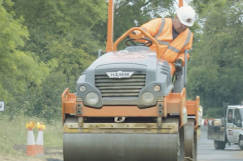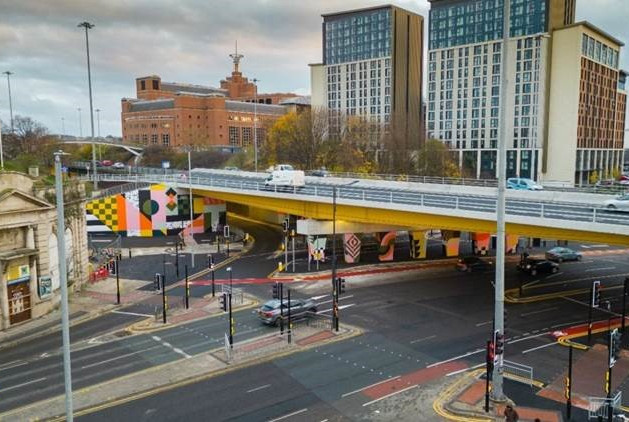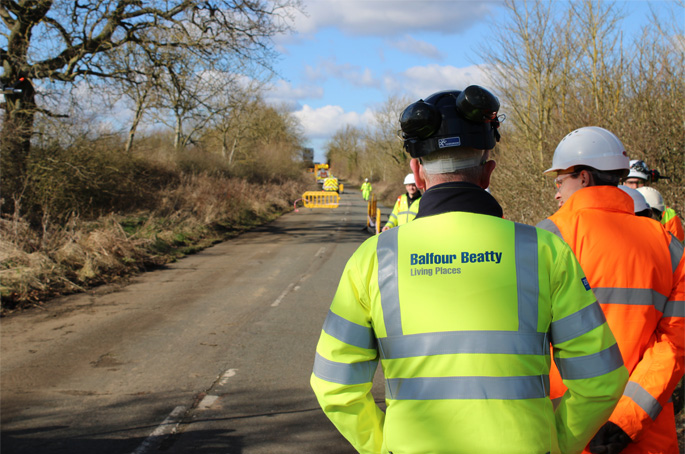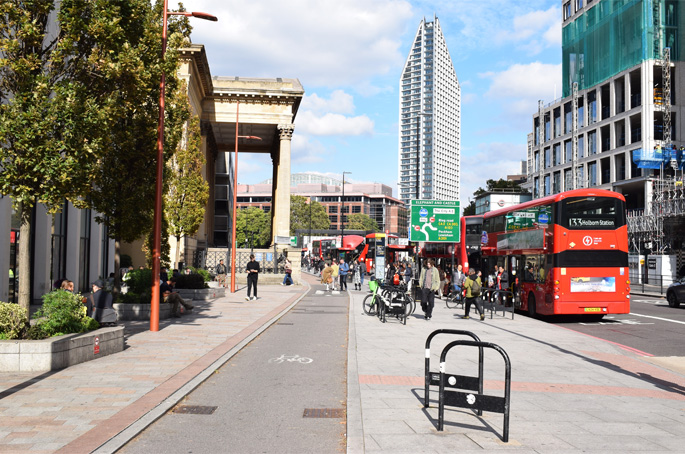Despite its negative environmental image, asphalt could be the second most recycled material in the world after water. But can we go further? Bruce Spencer-Knott, managing director of Minster Group, discusses how the company is helping lead the fight to make our sector more environmentally sustainable in its most basic elements
As construction industries go, road surfacing is certainly not considered the most environmentally friendly. The production of virgin asphalt takes a hefty toll on the environment.
Road surfacing is widely seen as dirty and pollutive, and it is easy to see why. The strong smell of a freshly laid road, the oil-soaked asphalt and the roar of heavy machinery don't exactly scream ‘natural' or ‘environmentally-conscious'.
But at Minster Group, we are making a huge effort to reduce our impact on the environment. With the use of innovative technology, we produce roads that are around 50% recycled. We hope to take that further – making roads which are 90% recycled, helping to make road surfacing a smarter, cleaner and greener industry.
Depending on traffic and climate conditions, asphalt roads generally have a lifespan of 25 years, after which they need to be relaid. This means that just as frequently as we are laying roads, we're ripping up old ones which need to be replaced, so the construction industry is hungry for materials.
Asphalt is made from distilled crude oil and mineral aggregate, two resources that are finite and in short supply in this country. Quarries in the UK are struggling to keep up with the demand for virgin aggregates and, as you may notice every time you fill up your car, the price of oil is rising. As a result, so too is the cost of road surfacing.
Worse than the financial cost is the environmental cost. As well as taking raw materials from the earth, these materials have to be refined, processed and transported long distances.
Minster's foambase recycling plant
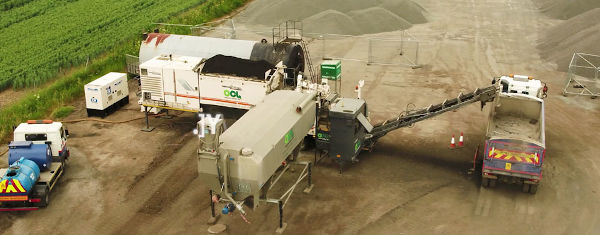
One way to resolve these issues is to increase recycling in the industry. Increased recycling would reduce the demand for new materials, make replacing roads a much more efficient process, reduce carbon emissions and cut down on the quantity of material that is sent to landfill once it is removed from a road surface.
This might sound like wishful thinking, but recycling in road surfacing is as easy as it sounds: the technology has existed for years, it's constantly improving and it can even reduce overall costs.
Rejecting tradition
Traditionally, roads used to be made using coal tar. Despite coal tar having medical and industrial uses, it is a carcinogen and the Environment Agency classifies asphalt waste that contains coal tar as hazardous. Because of this, many companies won't touch it, so it has to be safely disposed of.
This means even if the material contains just 0.1% coal tar, all of it goes to waste. However, this wasteful practice can easily be avoided. Even material which is over 0.1% coal tar can be safely reused and handled with care, in line with environmental and local authority standards as a base layer for a new road, where it is safely sealed and cannot harm anyone.
It is still the case that the very top layer of a road should be virgin asphalt to guarantee a smooth, unblemished surface that will meet all local authority requirements, but the 100mm thick base layer and 100mm thick binder course can be made up of almost entirely recycled material.
Cutting carbon footprints
Minster is passionate about recycling and waste reduction and has invested in numerous cutting-edge technologies and systems to make road surfacing as green as possible. The widespread use of recycling technology is a vital first step for the industry.
Many have been slow to catch on, but we were one of the first companies in the UK to take on the challenge and use OCL Regeneration's Foambase recycling technology and we now use it as part of a circular economy system.
With Foambase technology, material that is removed from old road surfaces is converted into a durable alternative to asphalt, as well as binder course products like foamed bitumen. This creates a safe and durable product that can be recycled and relaid many times.
As well as reducing the need for more mineral aggregate or crude oil, the creation of Foambase is much more efficient and sustainable than traditional hot asphalt; it produces 32% less CO2 and the technology even allows for material containing coal tar to be safely recycled and reused.
Thanks to the Foambase technology, recycled material can be used to produce farm tracks, industrial yards and car parks which are 100% recycled. It can also be frequently as we are laying roads, we're ripping up old ones which need to be replaced, so the construction industry is hungry for materials.
Asphalt is made from distilled crude oil and mineral aggregate, two resources that are finite and in short supply in this country. Quarries in the UK are struggling to keep up with the demand for virgin aggregates and, as you may notice every time you fill up your car, the price of oil is rising. As a result, so too is the cost of road surfacing.
Worse than the financial cost is the environmental cost. As well as taking raw materials from the earth, these materials have to be refined, processed and transported long distances.
One way to resolve these issues is to increase recycling in the industry. Increased recycling would reduce the demand for new materials, make replacing roads a much more efficient process, reduce carbon emissions and cut down on the quantity of material that is sent to landfill once it is removed from a road surface. used to create the sub-base, base and binder course layers of new roads, or it can be used in pothole repairs.
This one innovation has allowed Minster to save hundreds of thousands of tonnes of coal tar from going to landfill, which can cost councils up to £100 per tonne.
The businesses which use our services have massively reduced the carbon footprint of their developments through our technology.
We currently recycle around 50% of the material which we remove, but even the ‘new' material we buy is more sustainable than it used to be. A significant quantity of the material we use is produced from secondary aggregates supplied by construction solutions provider Tarmac. This reuses by-products of industrial processes in steel manufacturing to create materials with high sustainability and performance credentials for use on the road network.
As an example of how rapidly things change in this industry, we are currently developing and laboratory testing the next generation of recycled road material. This will enable us to make all roads we work on 90% recycled.
Our recycling and waste reduction systems already save thousands of tonnes of mineral aggregate and crude oil from having to be extracted from the earth and cut thousands of tonnes of CO2 emissions, but this new technology will double what we can achieve.
Added benefits
While the ecological argument for these innovations is clear, there is a strong business case for embracing new ways of working, because businesses that embrace technology are becoming a more attractive proposition for clients, which have their own sustainability goals.
Being technology-focused also makes the road surfacing industry more attractive for young people, who may be considering a career in the construction or surfacing industry. At a time when there is a substantial skills shortage and a growing number of experienced operatives reaching retirement age, this is more important than ever.
Getting the next generation interested by investing in technology and modernisation is a key way of demonstrating that road surfacing is an industry that is embracing Continued from page 32 innovation, technology and greener ways of working, which is full of opportunities and where hard work is rewarded.
A changing industry
Road surfacing is a rapidly transforming industry, with green innovations saving thousands of tonnes of carbon emissions, where high tech equipment is delivering incredible results, where we can fix a road as soon as a fault is reported and where workers are well protected and well rewarded.
You might think road surfacing seems old-fashioned and stuck in the past; yet in a world where more people and businesses are becoming conscious of their impact on the environment, the road surfacing industry has been quietly working to make itself more innovative and sustainable.

